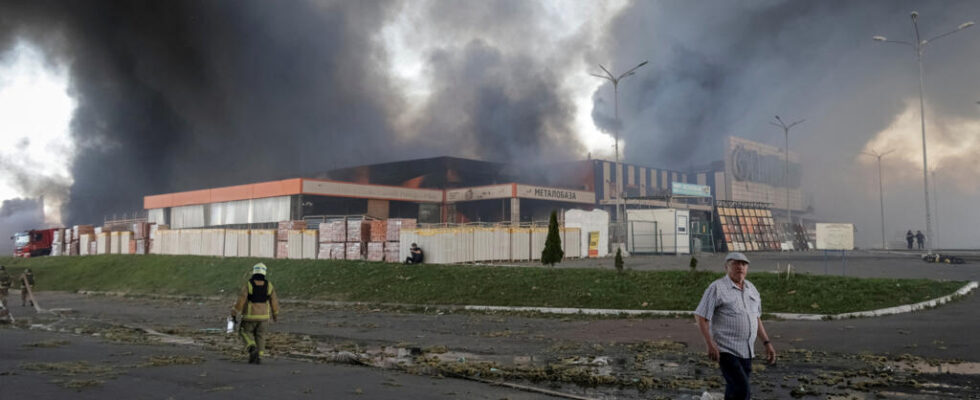The war in Ukraine also has an impact on the global climate. According to a scientific study published this week, in two years, the conflict is responsible for the emission of 175 million tonnes of CO2. The equivalent of the annual emissions of a country like the Netherlands and which contribute to global warming. Which could be expensive in terms of climate impact.
4 mins
The billions of liters of fuel used by military vehicles alone are responsible for about a third of Ukraine’s war-related greenhouse gas emissions, according to this study (to consult herein English).
Another third comes from the enormous quantities of steel and cement used to fortify hundreds of kilometers of front lines, as well as to repair extensive damage, particularly early in the conflict.
“ It will take a lot of cement and steel to rebuild all the schools, homes, and more that were destroyed, and the manufacturing of these materials produces large amounts of greenhouse gases », Specifies Lennard de Klerk, lead author of the study.
Then come emissions linked to the detours that airliners must make to avoid Ukrainian and Russian skies. Hours and hours of extra travel. “ While European and American carriers are barred from accessing Russian airspace, Australian and some Asian airlines are avoiding it as a precaution, while those using it are bypassing it further north than usual. » details the report. This additional fuel consumption is expected to release the equivalent of 24 million tonnes of CO2, which corresponds to 14% of total war-related emissions according to researchers.
Also listenUkraine: several months after the rupture of the Kakhovka dam, what environmental impact?
Nature and infrastructure gone up in smoke
Nearly a million hectares of fields and forests were burned according to satellite surveys, particularly near the front lines, burned by bombs and difficult to access for firefighters. These fires should release 13% of emissions.
Likewise, hundreds of oil and gas infrastructures also went up in smoke. Ukrainian fossil fuel deposits were dynamited and, above all, the sabotage of the Nord Stream gas pipelines led to significant leaks of methane, a gas with a warming effect 80 times greater than CO2. To a lesser extent, the displacement of millions of Ukrainian refugees and many Russians also played a role.
In total, the 175 million tonnes of CO2 emitted in two years of war “ equivalent to the pollution of 90 million gasoline or diesel cars for a year or to the annual emissions of a state like the Netherlands », notes Lennard de Klerk.
Also listenUkraine: an unnatural war
“War emissions” valued at almost $33 billion
The expert initiated this study two months after the start of the war, with other researchers, on a voluntary basis. Since then, the “Initiative on Greenhouse Gas Accounting of War” (IGGAW) has received support from European funds and states such as Ukraine, but also Sweden and Germany.
“ Of course, the greatest impact of this war is suffered by Ukraine and its people, but these greenhouse gas emissions caused by the war also affect our climate. Climate change is a global problem, so ultimately we will all pay the price », Estimates Lennard de Klerk.
The members of the IGGAW wanted to estimate this price. Based on a method developed by other scientists, who recently published a study in the very serious journal Nature. They were able to determine that these “war emissions” would cost almost US$33 billion. “ It won’t necessarily be damage that will take place in Ukraine: it could be damage due to floods in Bangladesh or tornadoes in the United States… We don’t know where it will happen. »
This money, the IGGAW believes that it is up to Russia to pay and Lennard de Klerk for his part believes “ that part of it must go to Ukraine of course to replant destroyed forests for example, but this money must above all feed funds like the Green Climate Fund, under UN management to help developing countries, the South overall [plus vulnérable au changement climatique]to adapt “. For its part, the Ukrainian government welcomed the report, saying it will help establish a case for compensation against Russia.
